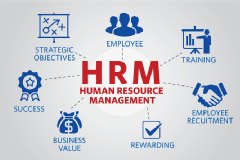| Unit | Syllabus | ExpectedOutcomes |
| Unit I | Introduction tomanagement - meaning, definition,concept, scope andprinciples ofmanagement –Evolution ofmanagement thought –management Theories– classical, behavioral,system, contingency,contemporaryperspectives onmanagement - management as an art,science and profession,managerial processand levels ofmanagement –introduction to functionsof management
| -Compare andcontrast the levels,roles, andfunctions ofmanagement -Distinguishbetween moderntheories ofmanagement,including qualitymanagement andsystemsmanagementtheory -Break downquantitativemanagement andthe roles ofbranches such asoperationsmanagement - Gain anunderstanding ofbusinessmanagement,including historicaland currentmanagementtheory, types ofmanagers androles of managersin an organization.
|
| Unit II | Planning-importance,objectives, process,policies and procedures- types of planning - decision making-process of decisionmaking – types ofdecisions – problemsinvolved in decisionmaking | -Illustrate thetypes of planningand its function inmanagement -Analyze thedecision makingprocess anddescribe toolsused to makeinformed decisions
|
| Unit III | Organization –meaning, importance,principles of organizing,span of management –Patterns of organization– formal and informalorganizations –common organizationalstructures - departmentalization,authority – delegation,centralization anddecentralization,Responsibility – lineand staff relationship | -Model differenttypes oforganizations,includingcentralized anddecentralizedorganizations -Examineleadership and itsrole inorganizations andthe differencebetween amanager and aleader
|
| Unit IV | Staffing – sources ofrecruitment, selectionprocess, training,directing, controlling –meaning andimportance, function,span of control,process and types ofcontrol, motivation,coordination – need,types and techniques ofcoordination - distinction betweencoordination andcooperation –requisites for excellentcoordination – systemsapproaches andcoordination | -Analyze the roleof motivation in theworkplace andhow managersaffect motivation -Illustrate thecommunicationprocess and therole oforganizationalcommunication
|
| Unit V | Emerging issues inmanagement – TQM,Technologymanagement, Talentand Knowledgemanagement,leadership,organizational changeand development, CSR |
|
The course can be edited as per the requirements of the students









